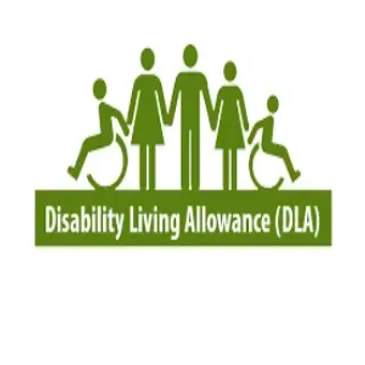In April 2024, the Disability Living Allowance (DLA) saw a 6.7% increase to keep up with inflation, benefiting those who rely on it for support with mobility or care needs. DLA, a tax-free benefit, helps people with a disability or health condition manage daily costs and can be claimed regardless of one’s savings or income. For those aged 16 and over, DLA is being replaced by the Personal Independence Payment (PIP), but many above the State Pension age still receive it.
DLA Rates For 2024/2025
DLA consists of two parts the care component and the mobility component with each offering different levels based on the extent of support required.
Care Component: Helps with personal and household needs, from assistance with dressing to cooking.
- Highest rate: £108.55 (increased by £6.80 from 2023/2024)
- Middle rate: £72.65 (increased by £4.55)
- Lowest rate: £28.70 (increased by £1.80)
Mobility Component: Supports those with significant mobility challenges.
- Higher rate: £75.75 (increased by £4.75)
- Lower rate: £28.70 (increased by £1.80)
The care component now offers weekly rates of £108.55 for the highest rate, £72.65 for the middle rate, and £28.70 for the lowest rate. The mobility component provides £75.75 for the higher rate and £28.70 for the lower rate. These updated rates aim to provide consistent, tax-free assistance based on individual care and mobility needs, helping recipients manage essential living and mobility costs.
For someone receiving both the highest care and higher mobility rates, weekly payments total £184.30, equating to £9,583.60 annually, an increase of £600.60 from last year.

Payment Schedule and Eligibility
DLA payments are made every four weeks, usually on a Wednesday. If a scheduled payment falls on a bank holiday, it will be issued beforehand. Payments are directly deposited into the chosen bank, building society, or credit union account.
Eligibility for DLA requires an assessment of the applicant’s care and mobility needs due to a disability or health condition. New claims can only be made for children under 16. Adults who would have qualified for DLA now apply for Personal Independence Payment (PIP) instead. Existing DLA recipients over the age of 16 will eventually transition to PIP, following an invitation to switch.
Receiving DLA can increase eligibility for several other benefits, allowing recipients to access higher levels of support. Some of the benefits that may be impacted include:
- Child Tax Credit
- Employment and Support Allowance (ESA)
- Housing Benefit
- Income Support
- Pension Credit
- Universal Credit
- Working Tax Credit
If you’re receiving the care component, a caregiver may also be eligible for Carer’s Allowance, adding another layer of support.
DLA for Those in Care Homes
DLA payments may continue while living in a care home, provided the individual pays for their own care. For those whose care costs are covered by the local authority, only the mobility component of DLA will continue after the first 28 days in the care home.
Benefit Cap Exemption
The benefit cap limits the total benefits a person can receive, but if you or your partner receives DLA, you are exempt from this cap. This means there is no limit on the amount of benefit support available to DLA recipients, regardless of other benefits they may qualify for.
Frequently Asked Questions
1. How has the Disability Living Allowance (DLA) changed for 2024?
In April 2024, the Disability Living Allowance (DLA) went up by 6.7% to match inflation. This increase covers both the care and mobility parts of the payment.
2. Who is eligible for DLA?
DLA is only for children under 16. Adults 16 and over can no longer apply for it and should apply for Personal Independence Payment (PIP) instead.
3. Can I qualify for a Motability car on the lower rate of DLA?
No, the Motability Scheme requires the higher rate of the DLA mobility component or equivalent PIP eligibility.
4. Can I receive DLA while living in a care home?
Yes, if you pay for your own care. If the local authority covers your care costs, only the mobility component continues after the first 28 days.
5. Does DLA affect other benefits?
Yes, receiving DLA can increase eligibility for additional benefits like Universal Credit, Housing Benefit, and Carer’s Allowance for your caregiver.
